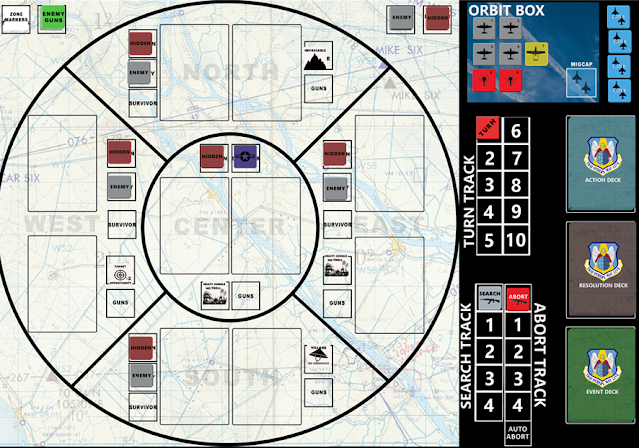Designer's Diary Part 7: Historical Scenario 1 Background

In my game, That Others May Live, the first historical scenario is called “Cauldron of Fire” on page 9 of the TOML rulebook. Here's the description: It is June 1968. While bombing enemy supply trucks at the north end of the A Shau valley, an A-4 Skyhawk is shot down by surprisingly heavy and accurate anti-aircraft fire. The pilot ejects, but is seriously injured. His wingman and a “Nail” FAC are already on the scene when the Combat Search and Rescue team arrives. High winds prevent the use of some special weapons in the rescue operation. Historically, the mission was a failure. It was abandoned after one of the rescue helicopters was destroyed by enemy fire. There were no survivors. A ground team was later inserted to find the pilot, but failed to locate him. This scenario is loosely based on the events of June 9 and 10 th , 1968 when US Marine Captain Walter Schmidt callsign Hellborne 215 was shot down by enemy anti-aircraft fire while on a bombing mission over the A Shau ...

